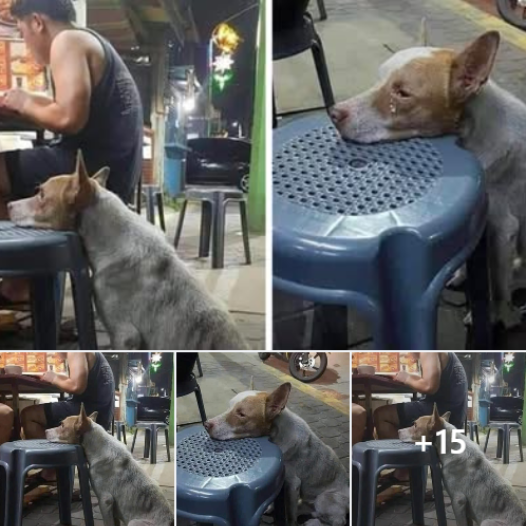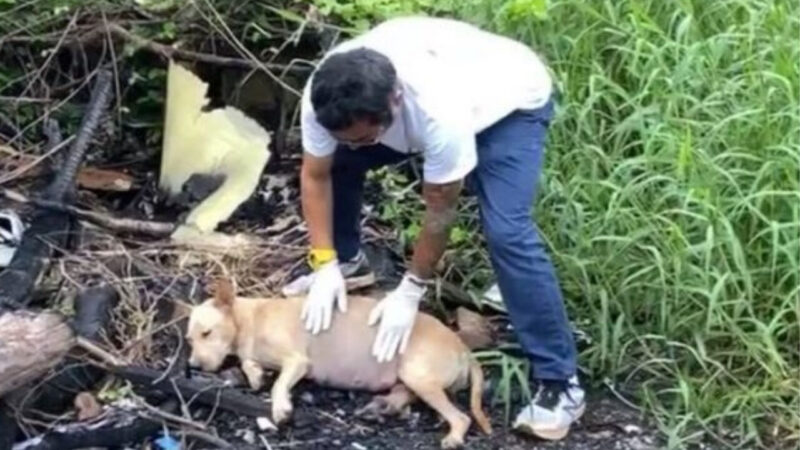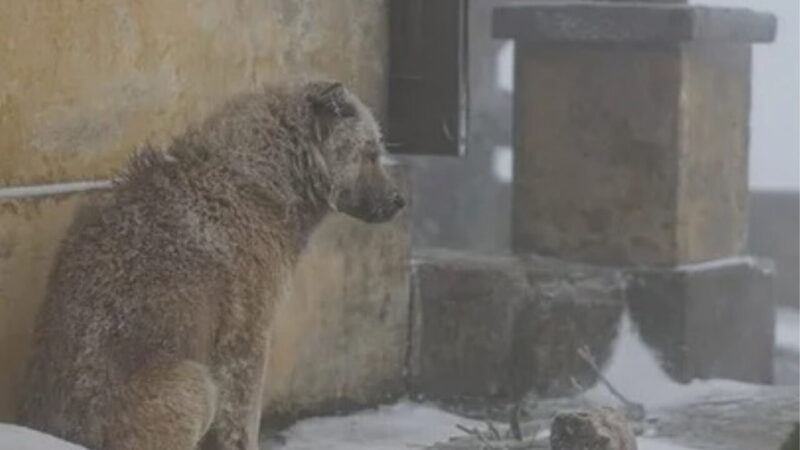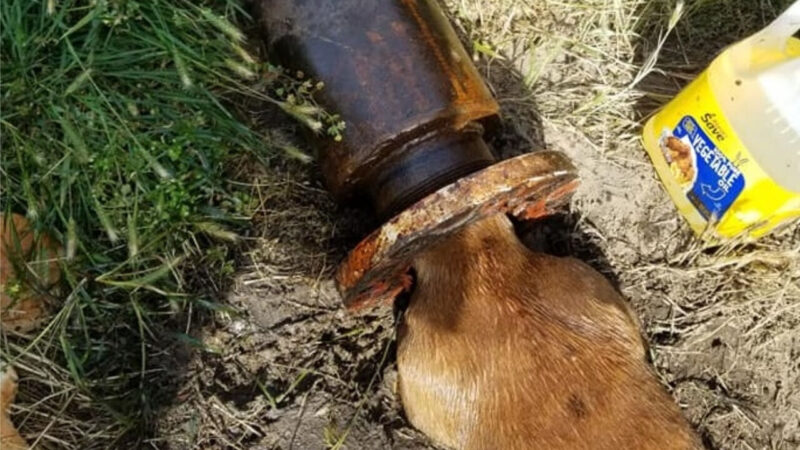Hungry Dog Rests His Head on a Chair in a Restaurant; Waiting for Food to Be Given to Him

The streets of our modern cities are becoming increasingly crowded with forgotten souls—dogs that once knew love or safety but now roam in silence and hunger. They wander aimlessly between cars and alleyways, their tired eyes searching for a kind gesture, a warm word, or a scrap of food. These stray animals are more than just unfortunate beings in a cold urban jungle; they are silent reminders of how easily society can overlook the vulnerable. And yet, sometimes, a simple act of kindness can ripple across the world and awaken thousands of hearts.
This particular story comes from a viral tweet shared by a compassionate Twitter user, @SuavesLomitos. The tweet was titled with painful accuracy: “How ugly it is to be hungry and not be able to tell.” The title alone captured the essence of the tragedy lived daily by so many stray animals. But what followed in the post was more than just words. It was an image that broke thousands of hearts and inspired just as many to act with empathy.
The image showed a hungry stray dog lingering around outdoor restaurant tables. He wasn’t aggressive or loud. He didn’t bark or beg in the conventional sense. Instead, he quietly approached each table and gently laid his head on a chair beside the diners. With pleading eyes, he looked up at the strangers who had plates of warm food before them. He did this again and again—hoping, waiting, without a sound. His body language spoke volumes, perhaps even more eloquently than human words ever could.
There were no loud protests or dramatic cries. Just silent desperation. And that silence, that respectful and heartbreaking manner in which he asked for help, touched people more than any noise ever could.
Sadly, not everyone responded with kindness. According to the user who posted the story, some diners actively ignored the poor creature. A few even shooed him away, unwilling to part with even the tiniest morsel of their meal. This response stirred frustration and sorrow in the observer, who couldn’t understand how anyone could be so indifferent to such a pitiful sight.
The tweet quickly went viral. It garnered over 4,000 retweets and hundreds of emotional comments. The Internet responded with a wave of empathy and heartbreak. People from around the world voiced their sorrow, guilt, and encouragement to do better for animals like this.
One user commented, “How awful it is to have five senses and still not be able to perceive suffering.” The statement was a sharp critique of how desensitized many have become to the presence of pain, especially when it doesn’t speak the same language as we do.
Another user offered a practical suggestion that deeply resonated with readers: “It’s a good idea to always carry a small bag of kibble with you. I know rescuing or taking them to a shelter would be best, but when you can’t, even a little food and love can make a difference.” This idea was met with support. For many, it felt like a simple yet powerful step forward—something anyone could do without needing wealth, status, or connections.
Yet perhaps the most heartwarming reply came from a woman who recognized the dog. She said she had seen him before and had made it a habit to buy him taquitos each time she visited that restaurant. Her consistent generosity, though small in the eyes of the world, meant everything to that little dog. It was a reminder that compassion doesn’t always have to come in grand gestures; sometimes, it’s the everyday kindness that saves a life.
Of course, feeding a hungry stray must be done thoughtfully. A dog that has gone days without food may have a delicate stomach and could react badly to rich or unfamiliar foods. Offering something soft, simple, and easily digestible is often the best approach. And if possible, providing clean water alongside the food is essential. These animals suffer not just from hunger, but also from dehydration, exposure, and neglect.
The story of this particular dog, whose ribs were clearly visible beneath his thin skin, is not unique. All across the globe, millions of stray dogs live in similar conditions. But when their story is told—when someone takes the time to acknowledge their suffering—the world listens. The tweet from @SuavesLomitos did just that. It turned one dog’s quiet plea into a universal cry for help.
There’s an important takeaway in this story. While not everyone can adopt a dog, and not everyone has the means to rescue strays, everyone can choose to care. Feeding a hungry animal, sharing its story, or even just responding with a little empathy—these are choices that anyone can make. And these small choices, when multiplied by millions, can change the world for the better.
The viral nature of the tweet proves that compassion still resonates deeply with people. Many who saw the post shared similar experiences. Some talked about the strays they feed near their workplace or home. Others encouraged local adoption instead of buying dogs from breeders. A few even pledged to start carrying pet food in their cars, just in case they saw a dog in need on the side of the road.
And while it’s true that this dog may have only received a few scraps that day, he received something far greater as well: visibility. Thanks to social media, his quiet struggle reached thousands. Perhaps someone in his city saw the tweet and went looking for him. Perhaps he found a forever home. Or maybe, just maybe, the next time he laid his head on a chair beside a stranger, someone reached down and offered not just food—but love.
In a world overwhelmed by news of tragedy, politics, and conflict, it’s stories like this—of a hungry dog and a few kind souls—that remind us what truly matters. These moments pull us out of our daily routines and make us reflect on the kind of people we want to be.
So if you’re reading this now, take a moment the next time you see a stray animal. Offer some food. Leave out clean water. Call a local shelter. Or simply sit with them for a few minutes to let them know they’re not invisible.
Because as the story of this humble dog has shown us, sometimes the most powerful cry for help is the one made in silence.






